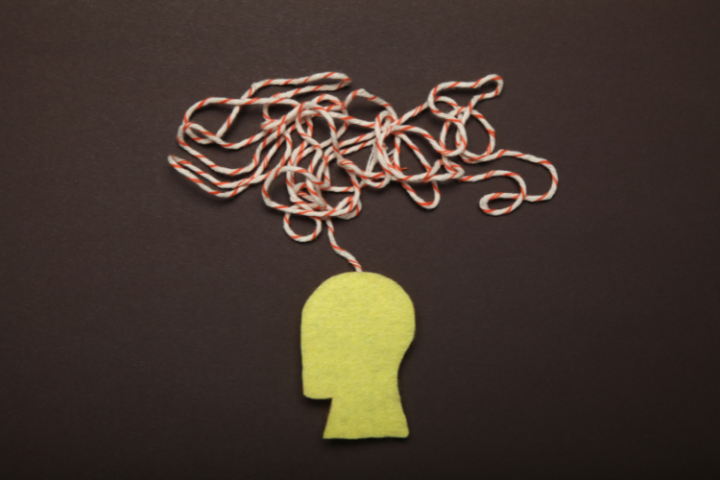Let’s slow this down.
Because let’s be honest—your mind may be racing, your schedule packed, and yet… something inside you is whispering there’s more. More to feel. More to understand. More to become.
In a world that rewards productivity over presence, it’s easy to become fluent in checklists and strangers to ourselves. We get good at pushing through. At managing. At pretending we’re “fine.” Meanwhile, the nervous system—the body’s quiet narrator—has been telling the truth all along.
So what if the key to mastering your emotions wasn’t more control—but a deeper connection?
What if the wisdom you’ve been craving isn’t out there but within?
Welcome to the powerful world of interoception—a body-based gateway to true emotional intelligence.
What is Interoception?
Imagine having a sixth sense—an ability to feel your internal landscape with clarity.
Interoception is your body’s ability to perceive internal cues: your heartbeat, breath, hunger, tightness in your chest when you’re anxious, or the warmth of contentment in your belly. These aren’t just physical sensations—they’re emotional breadcrumbs.
When we attune to these signals, we’re not just “being mindful.” We’re becoming fluent in the language of our nervous system.
Think of interoception as the body’s version of emotional subtitles. It helps you understand what you’re actually feeling, even when your mind is spinning a different story.
Why Emotional Intelligence Starts in the Body
We often think of emotional intelligence (EQ) as a cognitive skill—something we “figure out.” But the truth is more primal, more rooted.
Emotional intelligence isn’t just knowing your feelings. It’s feeling your feelings safely in real time.
Here’s where interoception becomes a game-changer:
🧠 1. Heightened Self-Awareness
Let’s say you’re snappy with your partner after work. On the surface, it’s “just a bad day.” But interoception helps you pause and notice: your jaw is clenched, your stomach tight. Beneath the irritability? You feel overlooked. Or maybe lonely.
That’s not weakness. That’s insight.
The ability to name what’s happening inside you—before it leaks outward—is the foundation of self-awareness.
💪 2. Stronger Emotional Regulation
Your protector might say: “Just keep it together.” But interoceptive awareness says, “Let’s listen first.”
By tracking subtle shifts in your body (like shallow breathing or tension in your chest), you catch emotional surges early—before they hijack your system.
This doesn’t mean bypassing emotion. It means building capacity to stay with it, instead of being swept away by it.
🤝 3. Deeper Empathy and Connection
The more attuned you are to your internal world, the more attuned you become to others.
It’s like turning the volume up on empathy. You begin to recognize emotional cues in others—not just from their words, but from their presence. You regulate with them, not just around them.
This is what co-regulation looks like: two nervous systems making space for each other.
Let’s Make It Practical: How to Build Interoceptive Awareness
You don’t need fancy tools. You need permission to slow down—and a few practices to help you listen inward.
🌬️ 1. Mindful Breathing (2–3 minutes a day)
Start with the breath. No need to change it. Just notice it.
Where do you feel it most—chest, nose, belly? What shifts as you observe?
“Your protector thinks slowing down means falling apart. But you’re proving you can handle discomfort—and that’s true healing.”
🧘 2. Body Scanning
Gently bring your awareness through each part of your body—from your toes to your jaw. What do you feel?
Not just pain—but pressure, warmth, coolness, stillness?
This isn’t about fixing. It’s about meeting.
✍️ 3. Somatic Journaling
Instead of “I felt sad today,” try:
“I noticed tightness behind my eyes and a sinking in my chest when I saw her walk away.”
Track sensations before labeling emotions. Over time, you’ll map your body’s unique emotional landscape.
When You Build Interoception, Life Changes
Seriously. Conversations shift. Triggers lose their grip. You begin to recognize which part of you is reacting—and which part longs to be seen.
And in that moment, you become the wise witness instead of the overwhelmed participant.
Let’s put it plainly:
-
Your capacity to handle hard conversations? Grows.
-
Your ability to pause before reacting? Strengthens.
-
Your relationships? Deepen.
-
Your self-talk? Softens.
This is not about becoming someone new.
It’s about remembering the you that’s been there all along—underneath the noise, underneath the armor.
The Science Backs This Up
-
Interoceptive accuracy is linked with better emotion regulation and reduced anxiety.
-
Studies show that interoception plays a critical role in empathy and decision-making. Source
-
Neuroimaging shows that people with higher interoceptive awareness have more activation in the insular cortex—a region tied to emotional experience. Source
A Gentle Invitation: Come Home to Your Body
If this resonates—if something inside you is saying “yes, this”—you don’t have to figure it all out alone.
This is tender work. Brave work. And it’s worth it.
Let’s explore how interoception and emotional intelligence can reshape your inner world and your relationships—together.
👉 Schedule your free consultation
(Let’s begin the journey of emotional embodiment, not just understanding.)
You’ve carried the weight of emotional suppression long enough.
Now? You get to feel. You get to understand. You get to transform.
Feel. Understand. Transform.
Your emotional journey starts here.
Let’s rewrite the way you relate to yourself—one breath, one sensation, one truth at a time.











